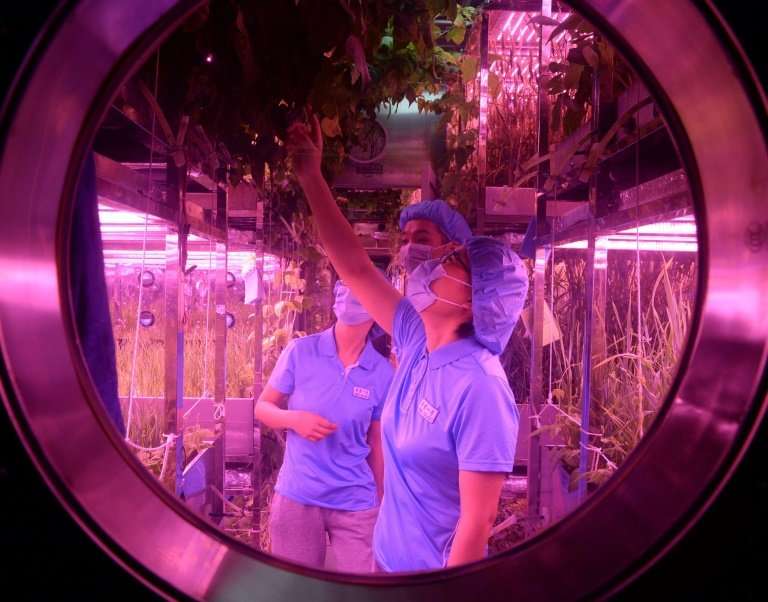Chinese volunteers spend 200 days on virtual 'moon base'

Chinese students spent 200 continuous days in a "lunar lab" in Beijing, state media said Friday, as the country prepares for its long-term goal of putting people on the moon.
Four students crammed into a 160-square-metre (1,720-square-foot) cabin called "Yuegong-1"—Lunar Palace—on the campus of Beihang University, testing the limits of humans' ability to live in a self-contained space, the official Xinhua news agency said.
The volunteers lived in the sealed lab to simulate a long-term space mission with no input from the outside world.
The experience tested them to the limit, the module's chief designer Liu Hong told Xinhua, especially on three occasions when the lab experienced unexpected blackouts.
The experience "challenged the system as well as the psychological status of the volunteers, but they withstood the test," Liu said.
The facility treats human waste with a bio-fermentation process, and volunteers grew experimental crops and vegetables with the help of food and waste byproducts.
Two men and two women entered for an initial stay of 60 days. They were then relieved by another group of four, who stayed 200 days.
The initial group will now return for an additional 105, Xinhua said.
The "Lunar Palace" has two plant cultivation modules and a living cabin: 42 square metres containing four sleeping cubicles, a common room, a bathroom, a waste-treatment room and a room for raising animals.
A successful 105-day trial was conducted in 2014.
China does not expect to land its first astronauts on the moon for at least another decade, but the project seeks to help the country prepare lunar explorers for longer stays on the surface.
China is pouring billions into its military-run space programme and working to catch up with the United States and Europe, with hopes to have a crewed outpost by 2022.
Russia and the United States have also carried out experiments to simulate conditions for long-term space travel and living on Mars.
Beijing sees the programme as symbolising the country's progress and a marker of its rising global stature, but so far China has largely replicated activities that the US and Soviet Union pioneered decades ago.
© 2018 AFP




















